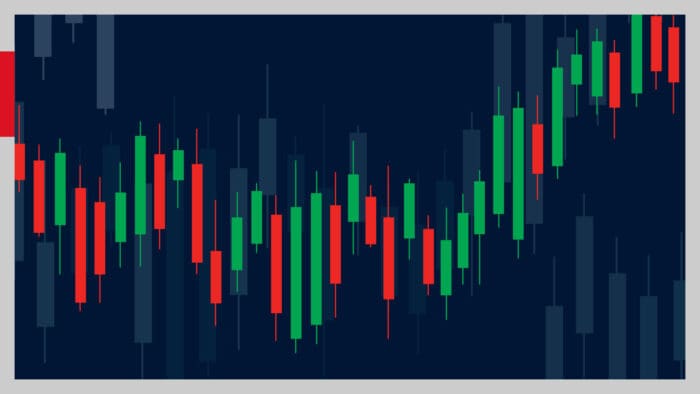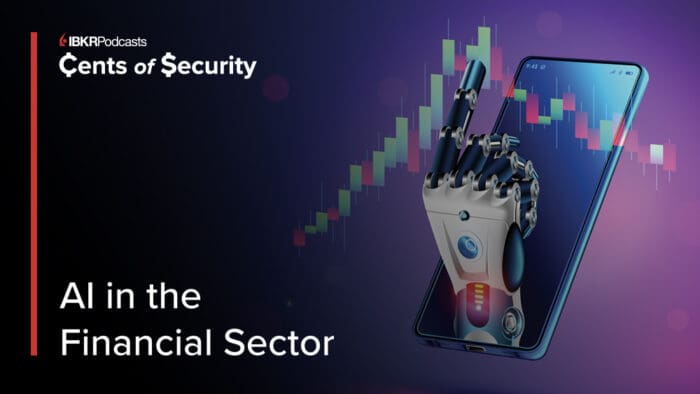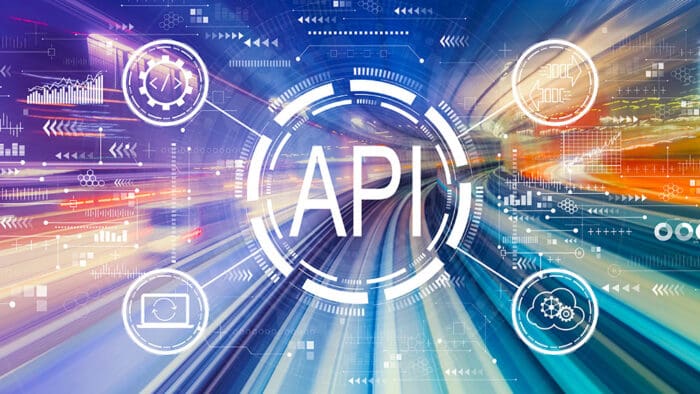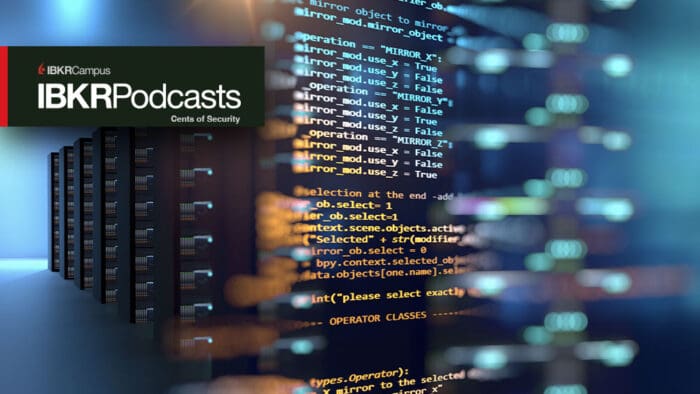Meet Juhi Raju Malkani – a budding full-stack developer in the final year of her MS program in computer science at San Jose State University. Juhi not only traveled across the country to do her summer internship at IBKR, but also deployed her code – for the first time – to actual clients as part of her project. In this podcast, Juhi shares how the internship program fit well with her career goals, how her mentors provided indispensable guidance, and why she would recommend interning at IBKR to anyone seeking a similar career path. This is a ‘must-listen’ for anyone seeking an internship or applying to work at IBKR!
Summary – Cents of Security Ep. 9
The following is a summary of a live audio recording and may contain errors in spelling or grammar. Although IBKR has edited for clarity no material changes have been made.
Steven Levine
Hello, and welcome to IBKR Podcasts. I’m Steven Levine, senior market analyst at Interactive Brokers.
I’m your host for today’s program. We’ll be speaking with Juhi Raju Malkani. She’s a summer intern here with us at IBKR, and we’re going to talk to her about her participation in our company’s internship initiative for 2023, including her aspirations and expectations. So, welcome, Juhi. Thanks so much for taking the time to do this.
Juhi Raju Malkani
My pleasure. I’m so glad to be here.
Steven Levine
I’m glad you’re here, too. So, Juhi, I understand you’ll be going into the second year of your master’s program in computer science at San Jose State University. Is that right?
Juhi Raju Malkani
Yes, that’s right.
Steven Levine
It’s a two-year program?
Juhi Raju Malkani
it’s a two-year program.
Steven Levine
Okay, so, this is going to be your final year before you get your Master of Science degree – your MS degree?
Juhi Raju Malkani
Yes.
Steven Levine
And you came all the way out here to our headquarters in Greenwich, Connecticut – all the way up from California – to do this internship. That’s quite a trip.
Juhi Raju Malkani
Yeah, almost across the country. This is my first time being on the East Coast itself, and it has been really exciting. It is so much more fast-paced, and not I’m not used to this kind of lifestyle, but it has taken me by awe, and I really like it.
Steven Levine
It is basically across the country. You’ve left the West Coast in favor of Greenwich, Connecticut. So, I have to ask you, why did you select IBKR as a place to do your internship? Did you have any other opportunities – closer to campus, for example, that you could have done this?
Juhi Raju Malkani
I chose IBKR for two reasons. I’m personally interested in the fintech industry – the finances – the fast-paced world that the finance industry has, and the amount of data that it has every day … so many things are changing every day … there’s new news, and the thrill of being in the finance industry. There was one reason that drew me here. And second reason was front-end development. I have been interested in front-end development for a very long time – and not just front-end development, but the design part of it interests me as well. So, this was a mix of both front-end, as well as finance that I was getting here. So, it drew me here. I finalized this offer way back in February, so I didn’t really look to other opportunities. I had given a ‘yes’ to this a very long time back and didn’t even consider applying to other opportunities, because I was getting the best of it.
Steven Levine
And it sounds like you’re getting the best of both worlds. Yes, we are a technology company first and foremost, but we have our heart – and our heartbeat – on what’s needed within the financial services industry. What I am curious about is: Where is it that you see yourself going, say, in five…ten years? Your future self – beyond your master’s degree – in the world. What does it look like? What are you doing? Are you involved in finance, do you think, at that point in time? Are you doing computer programming for financial companies? What do you want to do, exactly?
Juhi Raju Malkani
So, yeah, I like finance, and I would want to want my career to be in finance. I would definitely try that as my priority; but my major priority would be going into full-stack development from front-end development. So, front-end development is a part of full-stack development. So, going forward, I also need to learn back-end development. So, when these combine together, they create full-stack development. So, yeah, that is one of my goals of going forward in the next five to ten years. I want to be a full-stack developer, so that I can handle and understand all the aspects of the project by myself, as a developer … as a tester … designing the requirements…. So, start of the cycle – from designing the requirements to deploying it to the client – I need to be able to understand the full project. So, that is where I see myself in the next five to ten years – handling a full-stack project. I’m going to be a part of the team – doing it alone is not the goal, but at least understanding the entire project is something I need to be able to do and develop in all the aspects. So, full-stack development is my major goal, but if it’s in the finance industry, it is going to be a cherry on the cake.
Steven Levine
Well, there are always opportunities, I think, within the financial world, especially as it integrates more and more with technology. I mean, wouldn’t you say that finance and technology are becoming almost inseparable at this point? You’ve got a digital currency environment, for example, and that’s just one aspect of it, but the way that we communicate now financially, in terms of transactions, is basically—You can’t do without technology.
Juhi Raju Malkani
Definitely, I would agree. I mean, I don’t see technology and finance being separated henceforth. They are already so integrated that without technology, finance would become so difficult that I don’t see them as inseparable.
Steven Levine
Yeah, I don’t either, which brings me to this project that you did here at IBKR. Would you say that this particular project – it seems like it has some part in fulfilling this goal that you have of being a full-stack developer, at least on the front-end of it, and working closely with the back-end. But can you tell us a little bit more about what you experienced practically, and what exactly this project was intended to accomplish?
Juhi Raju Malkani
So, I’m basically working on the web and mobile applications that we have: so, web application is Client Portal, and mobile applications that we have is: GlobalTrader, IMPACT application, IBKR Mobile. I’m working on all of those. I have different tasks that allow me to develop the front end – that is the user interface that the client sees. So, I have been involved in all of that. Yes, I have been … mostly … 100% of it has been front-end development for me, but what brings my attention to all of these is that I’m getting so much variety in this – that Client Portal is a web portal, so it caters to people who are using laptops and big screens, whereas GlobalTrader, IMPACT, and IBKR Mobile is something that people use on the smaller screens. And, so, catering to two different kinds of UI [User Interface], and learning from it, has been my biggest achievement that I would say. I have to be dynamic, because I’m not getting tasks in a list that – okay, these are Client Portal tasks or these are mobile tasks – I’m getting tasks randomly, so I have to be dynamic about working around them, and that has been my biggest gain from this.
Steven Levine
is this a departure at all to your, say, experience in college … in your master’s courses? Does this complement thatin a practical way? I mean, what do you take with you that’s unique from this experience?
Juhi Raju Malkani
Definitely a more practical approach to my degree. I have learned front-end development in my degree in my previous semester, as a semester-long project. I was working as a front-end developer in that project as well, but, you know, we developed, and we displayed that project to the professor, but here we are actually being able to deploy it to the clients, going through the entire release cycles. So, we’re seeing how that code gets deployed and the value of code in the market, actually. So, yes, the degree was more theoretical, or more on the factual level, but here we are actually seeing practically how it gets deployed and used by the users, actually.
Steven Levine
Here, you actually get to put your skills to a certain use for an actual business case, and the results are actual.
Juhi Raju Malkani
Yes. Whatever code I have submitted has actually been deployed to production service, and it is being used by the clients. So, I’m actually seeing the impact of the use by the clients.
Steven Levine
That’s awesome. How do you feel about that?
Juhi Raju Malkani
That’s so awesome. My code being actually used.
Steven Levine
That’s everything really, and I think that’s what makes everything here worthwhile. And what would you say about your managers or mentors? I mean, how was the guidance in terms of leading you through these challenges? Did they leave you on your own, or how did that work?
Juhi Raju Malkani
So, it was somewhere between micromanaging and leaving me on my own.
Steven Levine
Okay.
Juhi Raju Malkani
It was more of my own initiative to ask questions when needed. They would assign me tasks – they would make clear the requirements of the task, and they would let me do it on my own, and whenever I approached them with questions, they made sure to resolve it to the root level. So, not only those questions were resolved on the task level, but it also improved my skills – both technical and collaborative skills. So, they made sure that I understand, and they were super reachable. I mean, that is the most important part for me that when I have questions, when I have doubts, I could reach out to them, and they would give me their time and make me understand what was important in that particular task – not just related to tasks but general questions, also, when I would ask them anything related to the internship, also. They were super reachable. And I feel great about it that I got mentored by such awesome people.
Steven Levine
That’s great. It’s really, really terrific to hear. Is there any highlights from this project, beside seeing your code get deployed to users, that you want to put a spotlight on? Any highlight in activities or events –maybe not directly related to the project at hand? …or related?
Juhi Raju Malkani
Yes, so, what we had was lunch and learn sessions every Friday for interns. And we had technical lunch and learn sessions for programming interns every Monday. Going through the series and learning so many aspects from so many top people working in the company – that was something that I really enjoyed. Every lunch and learn session was so interesting. I mean, I, myself, am not from … different backgrounds that those guys are coming from, let’s say finance, marketing, investor relations…. But all those … attending all those sessions made me understand so many aspects of this company, and at the same time, they were so involving. I didn’t feel left out not being a part of those teams. They made us understand those concepts to the child level, and it was an interesting experience for me apart from the coding.
Steven Levine
So, you got to know the company a little bit more holistically.
Juhi Raju Malkani
Right.
Steven Levine
That’s great. Is there anything else you’d like to add?
Juhi Raju Malkani
I feel that, overall, this internship experience has given me a glimpse of what my full-time [employment] might look like, and how I need to perform in my full-time experience, and what I need to be careful about, because since we are releasing our code to production servers, and it is being used by the clients, we have certain risks that we need to be careful about. This is not something that we learn by doing code by ourselves and not deploying it. So, this is one experience that I have, and I would take it forward with me when I go to my full-time job.
Steven Levine
Yeah, that’s really terrific, and that’s how you build things, and that’s how you build a career, I would say. Would you recommend this internship to anyone seeking a similar career path?
Juhi Raju Malkani
Yes, definitely, because [the] IBKR internship – what I’ve learned from here [at IBKR], and from my experiences of the peers, is that as interns … also, we get to touch the real projects that are happening. We’re not just given any random projects, or any dummy projects, that is just for the learning process, but we actually are touching the real projects. We’re working with the teams, and we are doing real-time work that any full-time employee would be doing. So, yeah, if a person wants to learn about the tech industry, about the finance industry, and how both of them work together, I would definitely recommend this internship.
Steven Levine
That’s awesome. It’s like … we just welcome you right into the workforce…. But this has been great. Juhi, thank you so, so much for taking the time. It’s really great talking to you. This is great.
Juhi Raju Malkani
Thank you so much. I really had fun.
Steven Levine
So, for our listeners, you can hear more of IBKR’s podcasts at the IBKR Campus. They’re also available on Spotify, Apple Music, Amazon, anywhere you listen to your favorite shows, and wherever you might tune-in, please rate and review us. We would love to hear from you.
We’ve also recently launched our new podcast series ‘Cents of Security’ – that’s ‘C-E-N-T-S’. That’s, you know, the kind of cents that you might have in your pocket – ‘Cents of Security’. It’s a whole series focused on financial literacy, and for those of you interested in learning all about credit scores, or managing a 401K, or seeking auto financing … a lot of really great topics, including some first-hand accounts from another side of this year’s intern class: those pursuing liberal arts-related careers, and they found success at our financial services firm. So, you won’t want to miss that.
And for a full list of financial education offerings, visit the IBKR Campus, where, as always, all of our educational material is provided to the public at no cost.
And until next time, I’m Steven Levine. For Interactive Brokers.
—
LEARN MORE!
- Careers at Interactive Brokers
- IBKR’s Interns – Liberal Arts Majors Thrive in the FinTech Sector
- IBKR Podcasts Ep. 37 – Keys to Success – Part 1
- IBKR Podcasts Ep. 38 – Keys to Success – Part 2
- About IBKR – History and More!
FOLLOW US!
Disclosure: Interactive Brokers
The analysis in this material is provided for information only and is not and should not be construed as an offer to sell or the solicitation of an offer to buy any security. To the extent that this material discusses general market activity, industry or sector trends or other broad-based economic or political conditions, it should not be construed as research or investment advice. To the extent that it includes references to specific securities, commodities, currencies, or other instruments, those references do not constitute a recommendation by IBKR to buy, sell or hold such investments. This material does not and is not intended to take into account the particular financial conditions, investment objectives or requirements of individual customers. Before acting on this material, you should consider whether it is suitable for your particular circumstances and, as necessary, seek professional advice.
The views and opinions expressed herein are those of the author and do not necessarily reflect the views of Interactive Brokers, its affiliates, or its employees.
















Join The Conversation
If you have a general question, it may already be covered in our FAQs. If you have an account-specific question or concern, please reach out to Client Services.